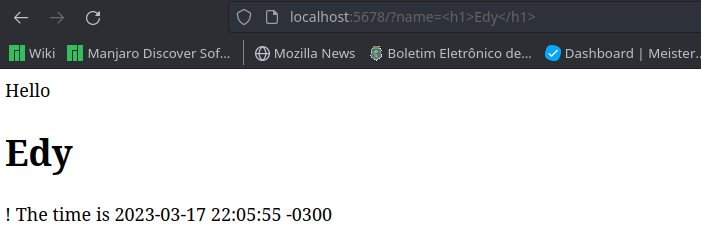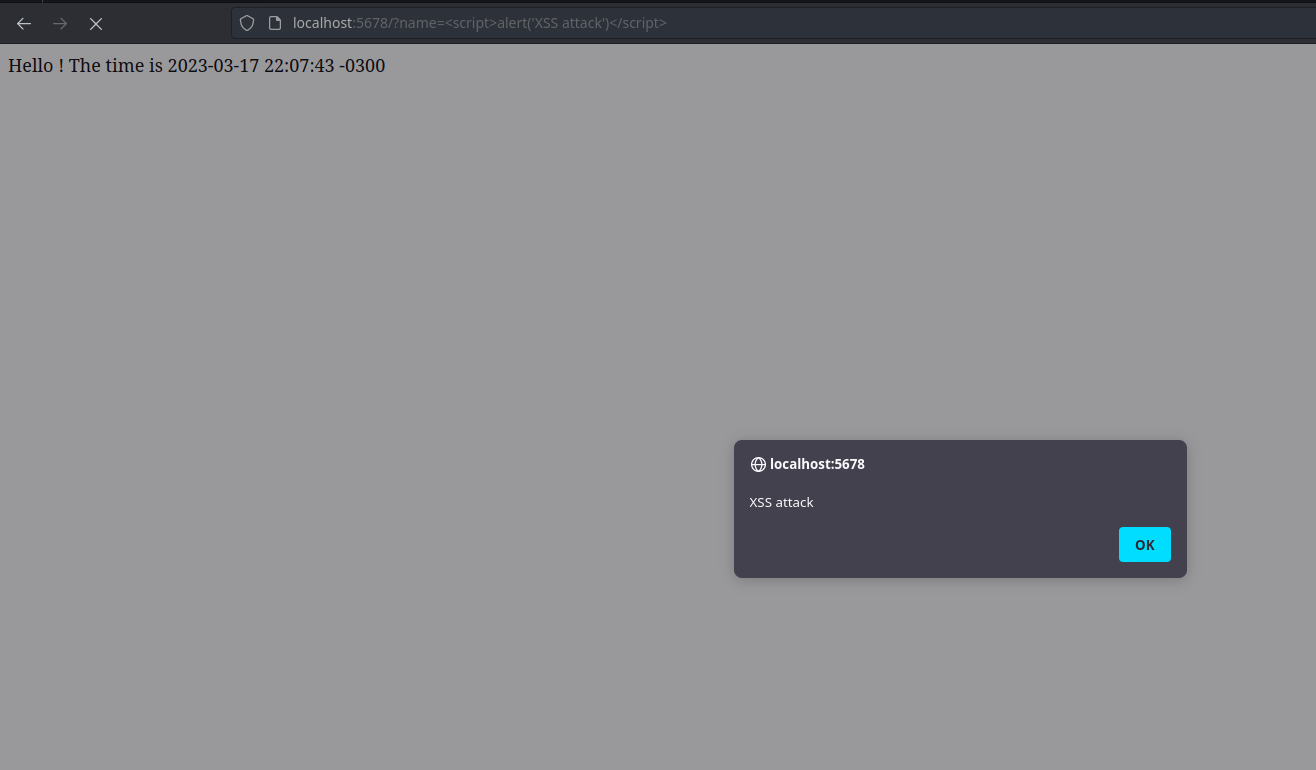This repository contains some experiments on XSS, CSRF, and other known vulnerabilities that can be found in web applications.
This project aims to bring some demos and explain some defenses against those vulnerabilities like SOP (Same Origin Policy) and CSP (Content Security Policy).
Basically we have an application running on http://localhost:5678. This application is, on purpose, vulnerable to XSS attacks. This is basically a grettins app where we pass a name in the query string and it says "Hello, {name}" (eg. http://localhost:5678?name=Edy Silva).
The point is, we can pass anything in such a param :scream. We can do something like
http://localhost:5678?name=<script>alert('XSS attack!')</script>. That's really bad.
The basic one was to pass a simple alert(). After that I tried to do something more exciting like stealing some
cookies. So I created another ruby server that produces a JS file, then I injected inside of the greetings app. This
JS reads the cookies and sends, via XMLHttpRequest, to another server.
The request raises an error in the browser console. The error is due to Same Origin Policy. The interesting thing about it is that the server still receives and processess the request. The browser only disallow the rendering from a different origin. So, I could still steal cookies.
For that I used the cookie-stealer.js but inside of another server written in fake-js-file.rb. This code serves the
JS file which contains the malicious code.
The JS file sends the information to the attacker server as shown in the image below.
WARNING: even with cors error the request is sent.
-
CSP Header
By adding the
content-security-policywe can mitigate this risk. Simply defining a policy asscript-src 'self'it blocks any script from outside world and the inline ones.Reference: https://developer.mozilla.org/en-US/docs/Web/HTTP/Headers/Content-Security-Policy
How to enable CSP in Rails -> https://www.stackhawk.com/blog/rails-content-security-policy-guide-what-it-is-and-how-to-enable-it/
-
Input sanitization
The bacic one. Just make sure you don't trust in the world. For example, add some escape to HTML tag in the input you receive. In ruby you can use erb for that.
puts ERB::Util.html_escape '<script>alert("xss attack")</script>' # prints -> <script>alert("xss attack")</script>
that's a simple escape but it can keep us safe.
-
Http only cookies
To prevent your cookies from being read from client, ensure they are http only cookies. Also, make them
secureso they will be transferred only under HTTPS.






